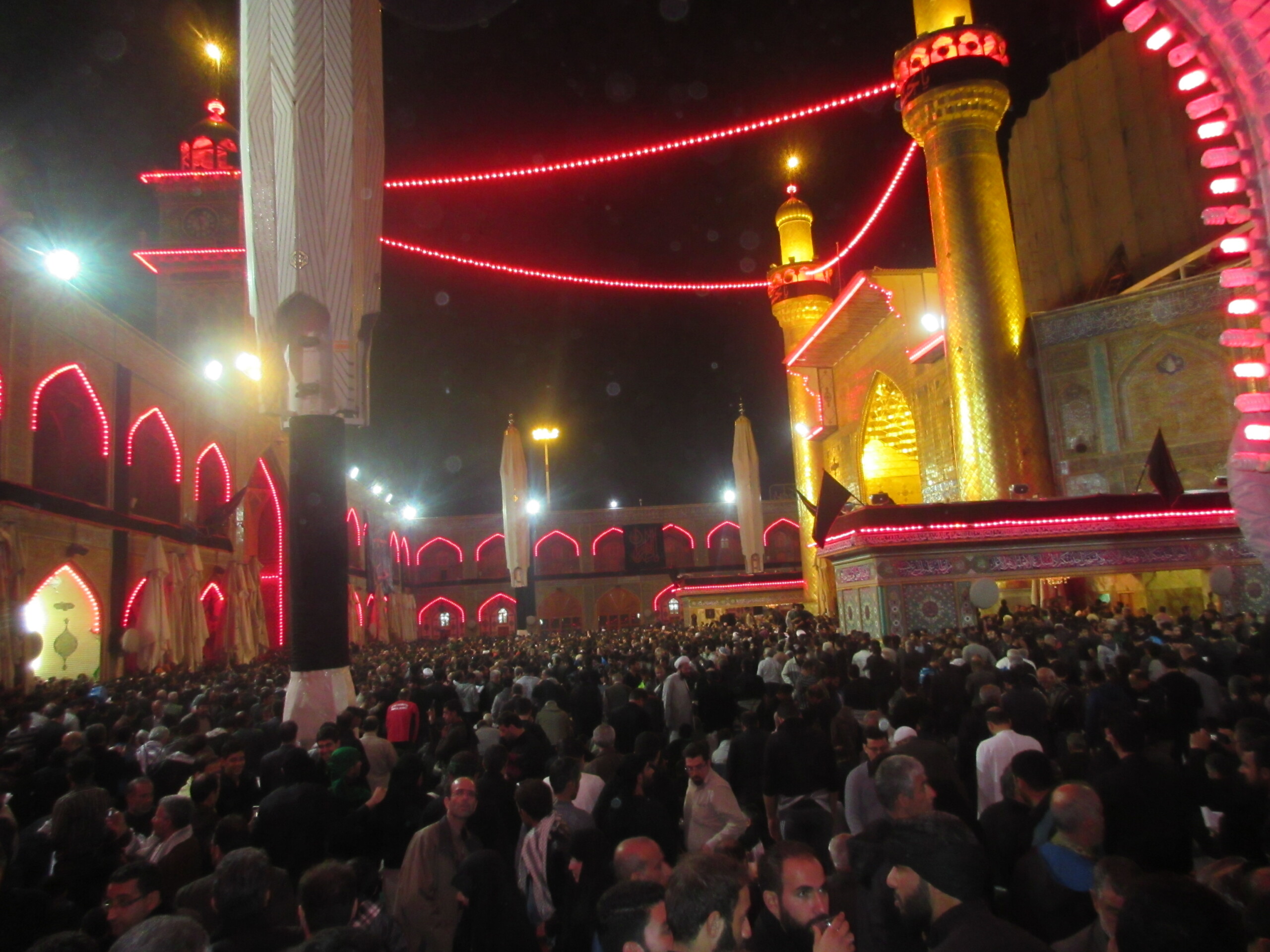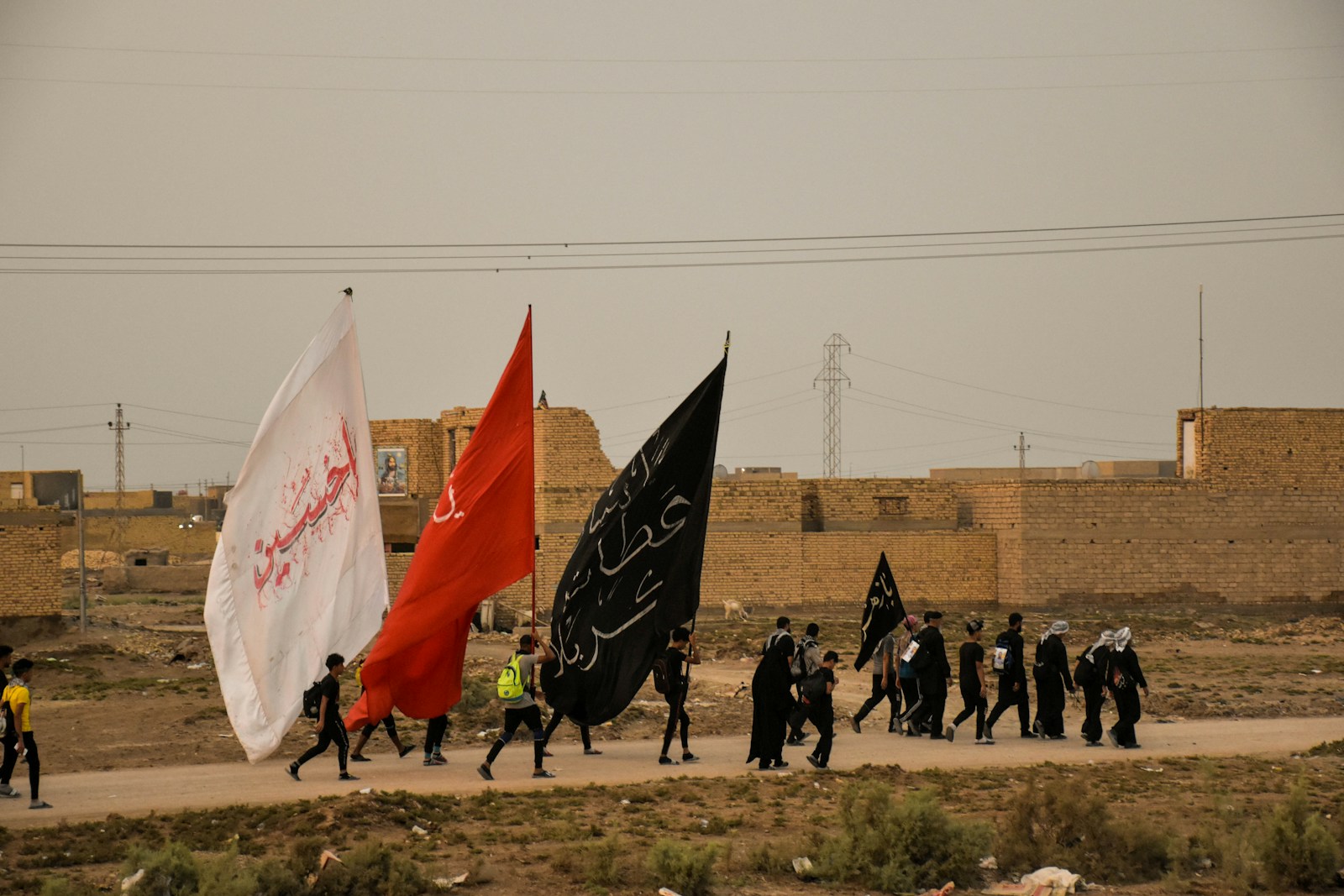The 20th of Safar, known as Arba’een or Chehlum, holds immense historical and spiritual significance in the Islamic calendar, particularly for Shia Muslims. This day marks the 40th day after the martyrdom of Imam Hussain (AS), the grandson of the Prophet Muhammad (PBUH), and his companions at the Battle of Karbala. The tragic events of Karbala, which took place on the 10th of Muharram in the year 61 AH (October 10, 680 AD), are among the most profound and defining moments in Islamic history, and the 20th of Safar serves as a day of deep reflection, mourning, and remembrance.
The Battle of Karbala: A Brief Overview
The Battle of Karbala was a pivotal event that occurred on the 10th of Muharram, known as Ashura, in 680 AD. It was the culmination of a conflict between the forces of Yazid ibn Muawiya, the Umayyad caliph, and Imam Hussain (AS), who refused to pledge allegiance to Yazid, believing him to be an unjust ruler. Imam Hussain’s stand was not just a political refusal but a moral and spiritual resistance against tyranny, corruption, and the distortion of Islamic values.
Imam Hussain, along with his family and a small group of loyal companions, was surrounded in the desert of Karbala by Yazid’s large army. Despite facing insurmountable odds, they stood firm in their principles, knowing that they were likely to be martyred. The battle ended with the massacre of Imam Hussain and his companions, and the capture of the women and children from his family, including his sister Zainab (AS) and his son Imam Zain-ul-Abideen (AS).
Events on the 20th of Safar: Arba’een and Its Significance
1. Arba’een (Chehlum) Commemoration:
- Arba’een marks the 40th day after the martyrdom of Imam Hussain (AS), a period traditionally observed in Islam as the completion of mourning. This day is significant as it allows the bereaved to process their grief and reflect on the lessons of the tragedy. For Shia Muslims, Arba’een has become one of the most important religious observances, where they honor the sacrifice of Imam Hussain (AS) and his companions, who laid down their lives for the sake of justice and truth.
- The Pilgrimage to Karbala: Arba’een is also marked by a massive pilgrimage to the shrine of Imam Hussain (AS) in Karbala, Iraq. Millions of Shia Muslims from around the world embark on this journey, making it one of the largest annual peaceful gatherings on the planet. Pilgrims often travel on foot, some covering hundreds of miles, as a testament to their devotion and to relive the hardships endured by Imam Hussain and his family.
2. Return of the Captives to Karbala:
- Following the massacre at Karbala, the surviving members of Imam Hussain’s family were taken as captives to the court of Yazid in Damascus. Among them were his sister, Zainab (AS), and his son, Imam Zain-ul-Abideen (AS). Their journey as captives was one of immense suffering and humiliation, yet they remained resilient, using their ordeal to spread the message of Karbala and to expose the injustices of Yazid’s regime.
- The Return to Karbala: According to Shia tradition, on the 20th of Safar, these captives were allowed to return to Karbala. This return was deeply symbolic; it was a moment of profound sorrow as they revisited the site where their loved ones were martyred and buried. The visit also served as an act of defiance, reaffirming their commitment to the principles for which Imam Hussain and his companions had sacrificed their lives.
3. The First Ziyarat of Imam Hussain (AS):
- Jabir ibn Abdullah al-Ansari’s Pilgrimage: Another significant event associated with the 20th of Safar is the first recorded ziyarat (visitation) to the grave of Imam Hussain (AS). Jabir ibn Abdullah al-Ansari, a companion of the Prophet Muhammad (PBUH), is said to have made this pilgrimage on the 20th of Safar. Despite his old age and blindness, Jabir was determined to visit the grave of Imam Hussain and pay his respects. His act of devotion set a precedent for what would become the annual Arba’een pilgrimage.
- Significance of Ziyarat: The ziyarat of Imam Hussain is more than just a visit; it is an expression of solidarity with his cause and a reaffirmation of the commitment to the values of justice, righteousness, and resistance against oppression. The tradition of ziyarat has grown over the centuries, with millions of pilgrims now making the journey to Karbala each year, particularly on Arba’een.
Historical and Spiritual Reflections
The 20th of Safar and the events associated with it are a time for Shia Muslims to reflect deeply on the moral and ethical lessons of Karbala. The stand of Imam Hussain (AS) against Yazid is seen as a timeless struggle between good and evil, justice and tyranny, truth and falsehood. His sacrifice is not only mourned but also celebrated as a victory of principles over power.
Arba’een serves as a reminder of the resilience of the human spirit and the importance of standing up for what is right, even in the face of overwhelming odds. It also highlights the role of women, particularly Zainab (AS), in carrying forward the message of Karbala, ensuring that the truth was not buried with the martyrs.
The Legacy of Arba’een
- #2024 No. of Pilgrims in Arba’een 2.2 Crore (22 Million)
- #2023 Record number of 25 Million
- #2022 : 21 Million
- #2021 : 21 Million
- #2020: 14.6 Million
- #2019: 15.2 Million
The legacy of Arba’een continues to inspire millions around the world. The pilgrimage to Karbala is a powerful expression of unity, devotion, and resistance. It transcends national and cultural boundaries, bringing together people from all walks of life in a shared commitment to the values exemplified by Imam Hussain (AS).
In the broader context, Arba’een serves as a powerful reminder of the importance of upholding justice, protecting the oppressed, and resisting tyranny, principles that are as relevant today as they were in 680 AD. Through the commemoration of Arba’een, the message of Karbala lives on, guiding future generations in their quest for a just and equitable world.
Safar 20, known as Arba’een, marks an important day in the aftermath of the Battle of Karbala. Arba’een is observed on the 20th day of Safar, which is forty days after the martyrdom of Imam Hussain (AS) and his companions in the year 680 CE.
After the tragic events of Karbala, the surviving members of Imam Hussain’s (AS) family and companions, who had been held captive in Damascus, were eventually released and allowed to return to their homeland. Among those who returned were Imam Ali Zainul Abidin (AS), also known as Imam Sajjad, the son of Imam Hussain (AS), and the only male survivor of the battle.
The journey of Ahl al-Bayt (the family of Prophet Muhammad, including the descendants of Imam Ali and Imam Hussain) from Damascus back to Karbala was an emotionally charged and spiritually significant pilgrimage. They traveled through various regions, and their return to Karbala marked a moment of remembrance, grief, and commemoration of the martyrdom of Imam Hussain (AS) and his companions.
Upon their return to Karbala, the family members of Imam Hussain (AS) found the battlefield of Karbala in ruins. The captives and survivors mourned the loss of their loved ones who had been martyred in the battle. Imam Sajjad (AS) is particularly remembered for the heart-wrenching sermons and prayers he delivered during this pilgrimage, eloquently expressing the tragedy and suffering that had befallen the family of Prophet Muhammad (PBUH).
The observance of Arba’een became a crucial part of the commemoration of the tragedy of Karbala. It was a time for reflection, mourning, and reaffirming the principles of justice, truth, and resistance against oppression, which Imam Hussain (AS) and his companions had stood for.
Today, Arba’een is one of the largest annual religious gatherings in the world, with millions of pilgrims, mostly Shia Muslims, walking to Karbala from various parts of Iraq and neighboring countries. It is a powerful display of devotion and solidarity, as people from all walks of life come together to remember the sacrifice of Imam Hussain (AS) and his companions and renew their commitment to the values they upheld. The observance of Arba’een continues to be a poignant reminder of the enduring legacy of Karbala and the inspiration it provides for seeking justice and truth in the face of adversity.


